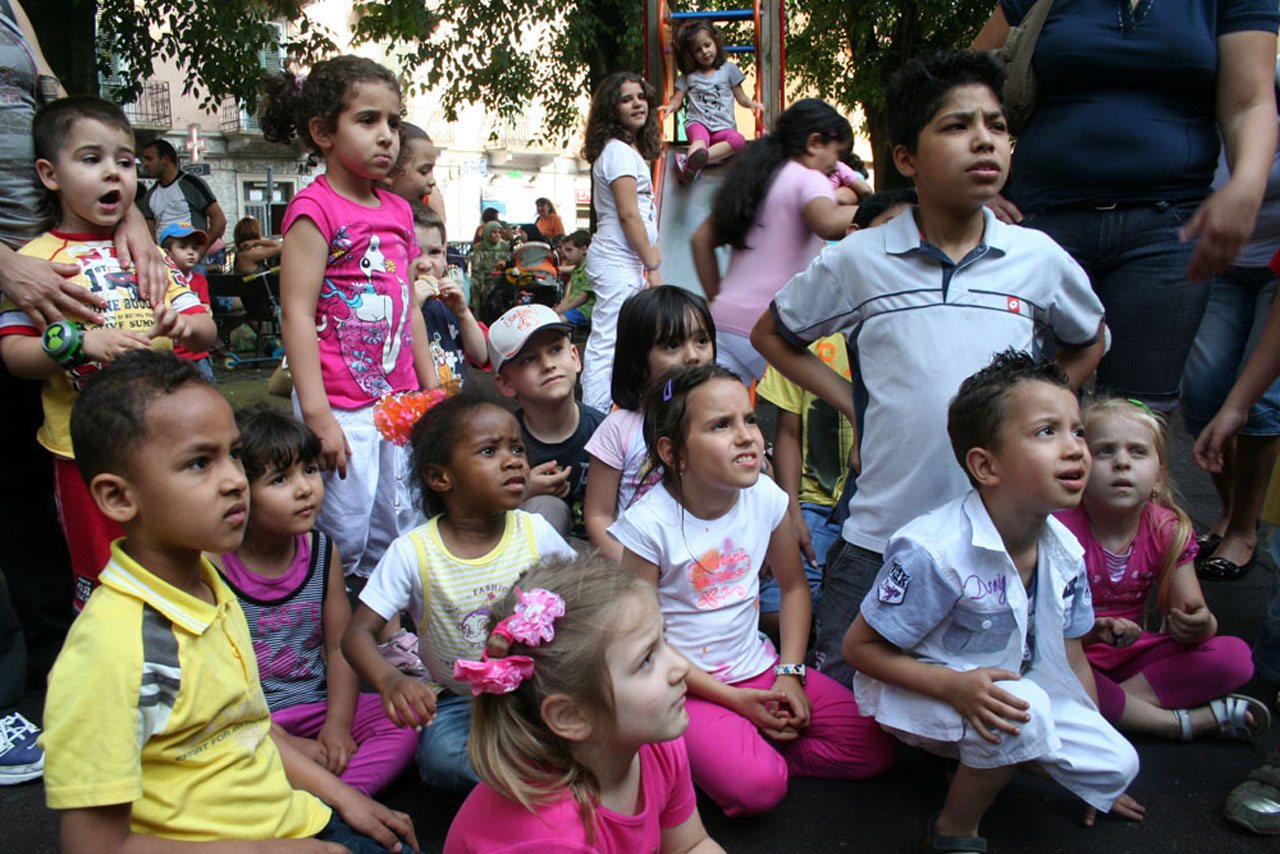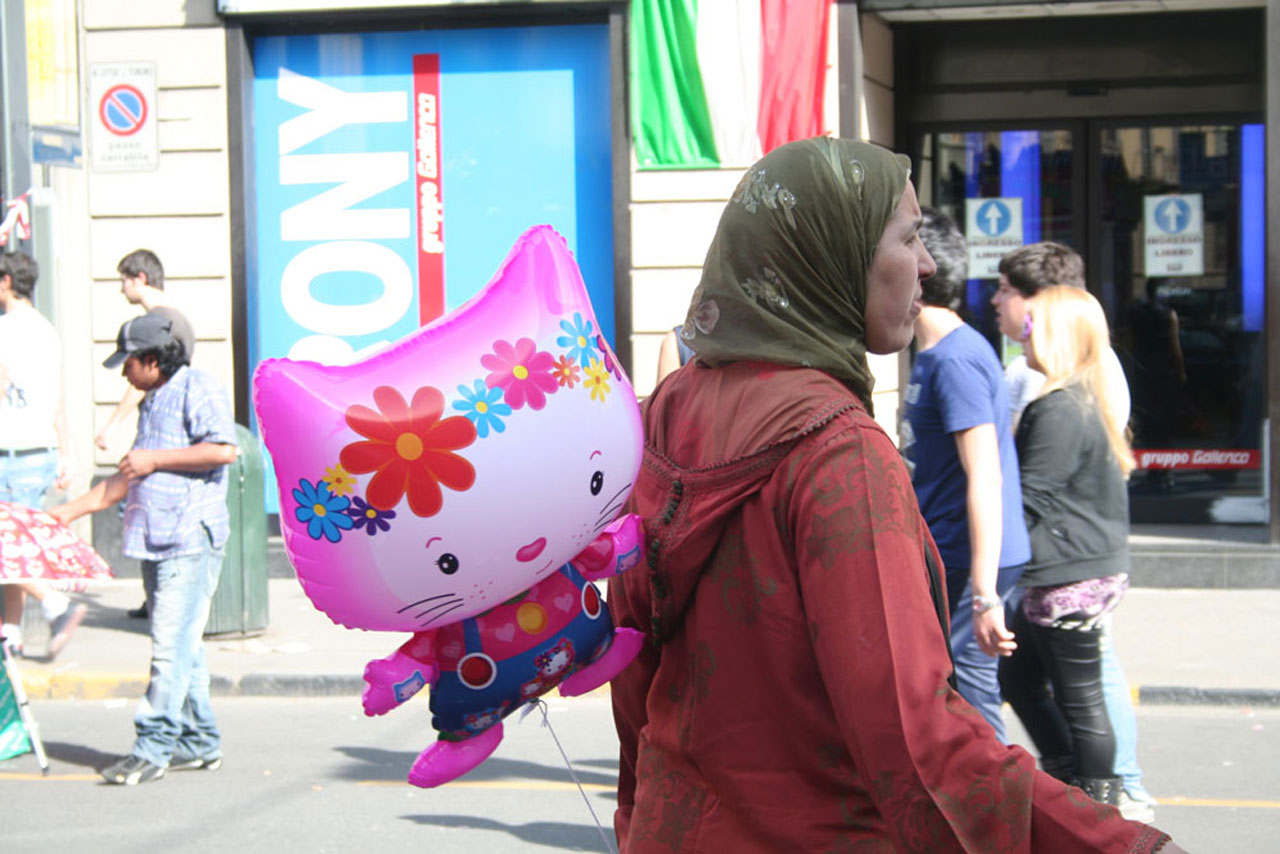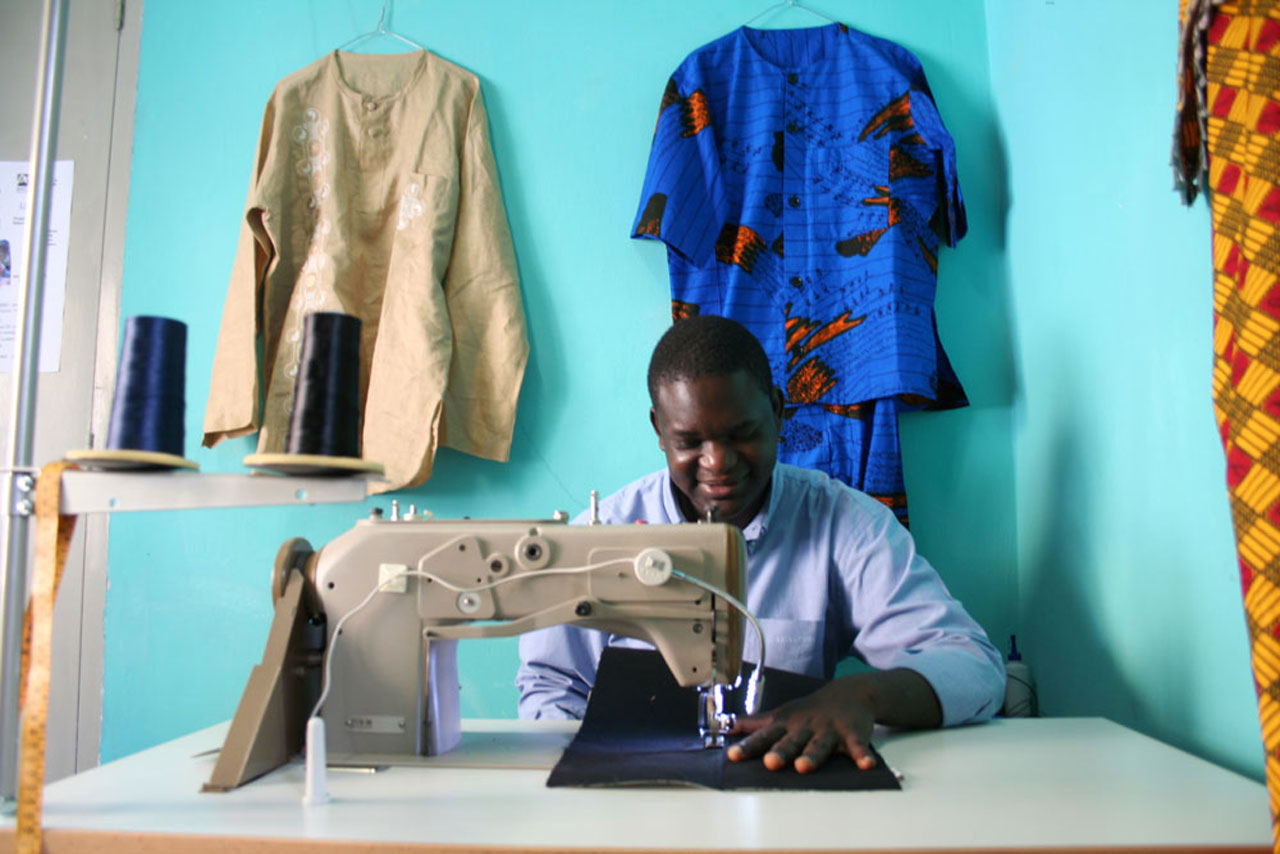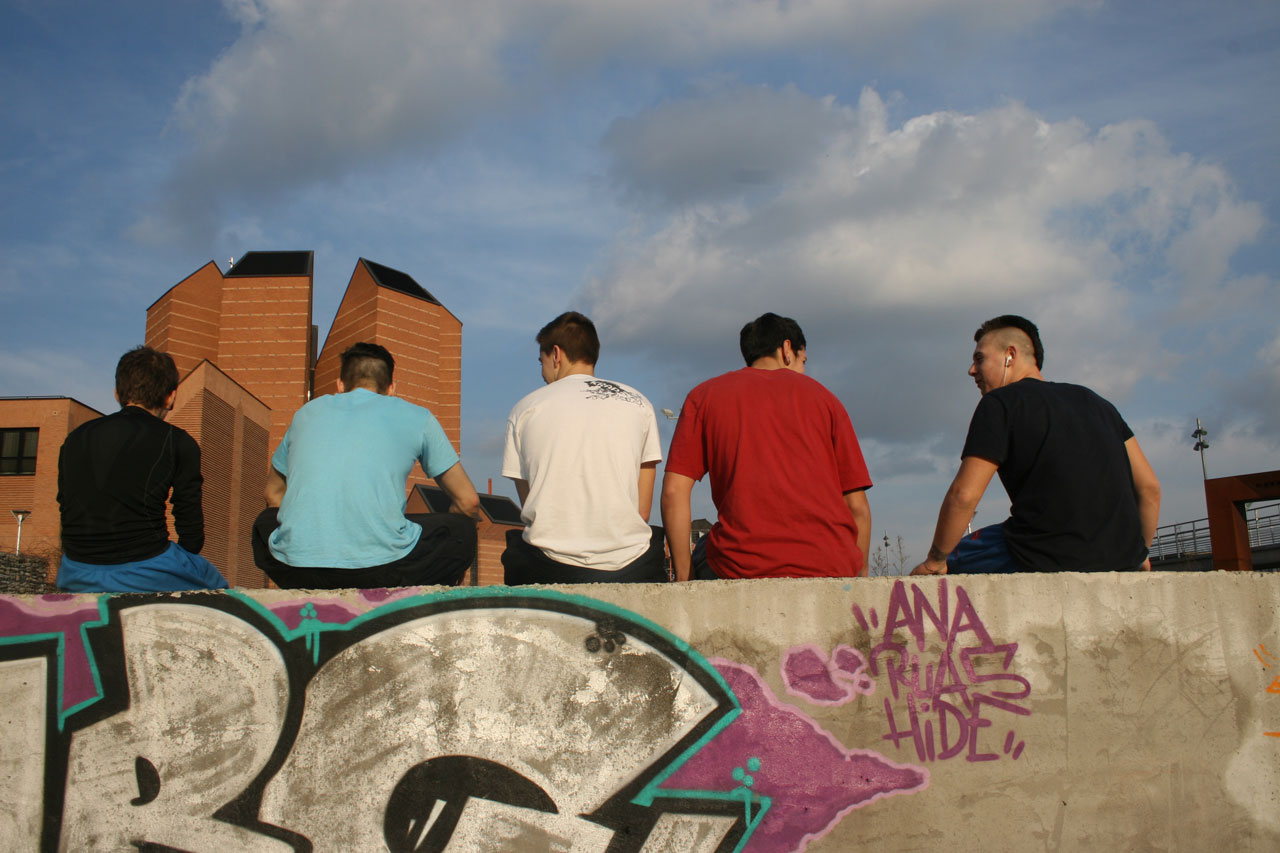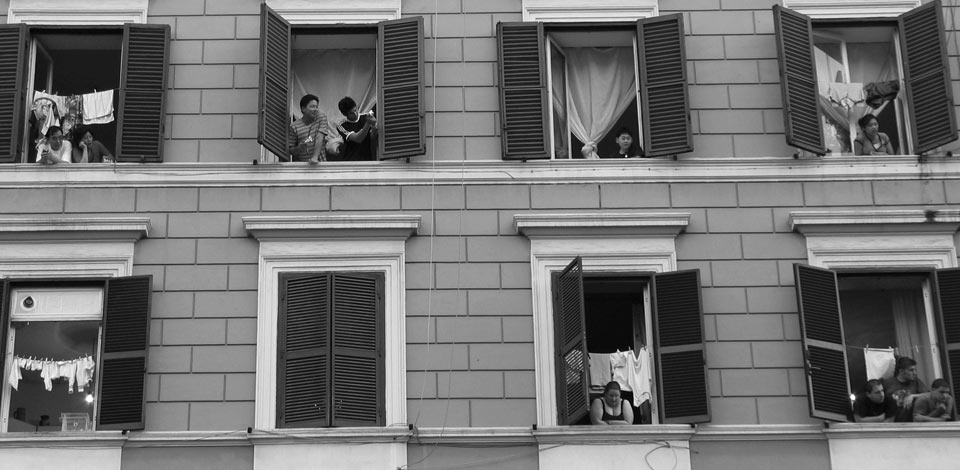Si terrà a Varsavia (Polonia) dal 3 al 6 luglio 2023 la ventesima Conferenza annuale di IMISCOE la più grande rete europea di ricerca sulle migrazioni, di cui FIERI è parte. Il tema di quest’anno è MIGRATION AND INEQUALITIES. In search of answers and solutions.
Tra i numerosi eventi previsti segnaliamo in particolare quelli che vedranno coinvolti i ricercatori di FIERI:
Migration narratives in a world of inequalities (Part 1)
Mon July 3, 13:00 – 14:30, Session #9 panel | SC Superdiversity, Migration and Cultural Change
Room: 2130
chair: Blanca Garcés-Mascareñas (CIDOB) and Ferruccio Pastore (FIERI)
- What are the filters? Migration narratives’ diffusion in the media sphere. A comparative perspective Marcello Maneri (University of Milano-Bicocca and FIERI associate)
- Polarization from above – dividing the political sphere by the moral panic button (MPB) Endre Sik (CSS)
- Negative narratives about migrants in France: a comparison between written press, TV news and Twitter Marie Moncada (Sciences Po Paris )
- Consensus-building strategies and structural power relations: citizenship reform in Italy and its public narratives Andrea Pogliano (University of Piemonte Orientale and FIERI)
Migration narratives in a world of inequalities (Part 2)
Tue July 4, 10:50 – 12:20, Session #85 panel | SC Superdiversity, Migration and Cultural Change
Room: 2136
chair: Blanca Garcés-Mascareñas (CIDOB) and Ferruccio Pastore (FIERI)
- Non-hegemonic narratives on migration in Europe Bastian Vollmer (Catholic University of Applied Sciences Mainz)
- Countering inequalities and exclusionary migration narratives from the ground: the case of Spain Berta Güell (CIDOB)
- The impact of EU-funded information campaigns on migration narratives in West Africa Ilke Adam (Brussels School of Governance & BIRMM, Vrije Universiteit Brussel),Omar N. Cham (Brussels School of Governance & BIRMM, Vrije Universiteit Brussel)
- Testimonial narratives of immigration and their power to reduce prejudice and promote intergroup help José J. Pizarro Carrasco (Pompeu Fabra University)
Reception of Ukrainian Refugees in Europe under the Temporary Protection Directive – a case of conditional (and temporary) solidarity?
Tue July 4, 09:00 – 10:30, Session #54 workshop | SC Migration Politics and Governance
Room: 2130
organizers: Jeroen Doomernik (University of Amsterdam) and Birgit Glorius (TU Chemnitz)
participants: Ferruccio Pastore (FIERI), Zaiga Krisjane (University of Latvia), Aleksandra Grzymala-Kazlowska (University of Warsaw), Östen Wahlbeck (University of South-Eastern Norway), Viktoriya Sereda (Forum of Transregional Studies/ Institute of Ethnology), Henriet Baas (European Universtiy Institute)
Forced Migration in and beyond Europe – State-of-the-art and future directions of scholarship
Tue July 4, 14:50 – 16:20, Session #104 workshop |
Room: 1110
organizer: Benjamin Etzold (Bonn International Center for Conflict Studies (BICC)
participants: Blanca Garcés-Mascareñas (CIDOB), Ferruccio Pastore (FIERI), Nando Sigona (University of Birmingham), Albert Kraler (University for Continuing Education – Danube University Krems), Franck Düvell (Institute for Migration Research and Intercultural Studies (IMIS), Osnabruck University, Anja van Heelsum (IMES), Birgit Glorius (TU Chemnitz), Marta Jaroszewicz (University of Warsaw).
Beyond MLG: how levels and actors entangle policy logics and interact in immigrant policy practice- Part 1: Local vs. National
Tue July 4, 16:40 – 18:10, Session #130 panel | SC Migration Politics and Governance
Room: 3110
chair: Maria Schiller (Erasmus University Rotterdam) and Tiziana Caponio (FIERI, Collegio Carlo Alberto and University of Turin)
- Repair multi-level governance: how Italian small and medium-sized towns and rural areas make up for the lack of national strategies and institutional settings in the field of migrant integration Irene Ponzo (FIERI)
- Local divergences in a state-centred framework: local integration policy in Sweden after the “refugee crisis” Måns Lundstedt (Malmö University)
- Multi-level politics of (dis)integration. Policies, initiatives, and practices for and against migrants’ access to housing and employment in small and medium-sized towns across the EU Reinhard Schweitzer (CIDOB), Blanca Garcés-Mascareñas (CIDOB)
- Cities and immigration: A relational approach towards cities’ immigration policies in Belgium and the Netherlands Ilke Adam (Vrije Universiteit Brussels), Louise Hantson (Vrije Universiteit Brussels), Elina Jonitz (Erasmus University Rotterdam), Laura Westerveen (Vrije Universiteit Brussels, Erasmus University Rotterdam)
Inequalities for labour migrants in the food supply chain industries: Conditions, rights and regulatory infrastructures
Tue July 4, 16:40 – 18:10, Session #134 panel | SC Immigration, Immigrants and the labour market in Europe
Room: 2116
chair: Pascal Beckers (Radboud University / RUNOMI)
- Working conditions and fragmented identities of migrant agricultural workers in Northern Italy. A socio-spatial approach Pietro Cingolani (FIERI/University of Bologna)
- Routine of the crisis, or crisis of the routine? Pandemic and war in Ukraine impact on the employment of migrant farmworkers in agriculture in Poland. Kamila Fiałkowska (Center for Migration Research, University of Warsaw) Paweł Kaczmarczyk (Center for Migration Research, University of Warsaw) Kamil Matuszczyk (Center for Migration Research, University of Warsaw)
- Intersectionality meets seasonal agricultural work: the case of Huelva (Spain) Berta Güell (CIDOB)
The Problem of Sub-Saharan African migrants’ Liminality Hanane Darhour (University of Ibn Zohr) - Occupational safety and health of labour migrants in the food supply chain during Covid-19: insights from Germany, the Netherlands, and the USA Nora Gottlieb (Bielefeld School of Public Health, Germany)
Methods, methodologies and positionality in reflexive migration studies
Tue July 4, 16:40 – 18:10, Session #147 panel | SC Reflexive Migration Studies
Room: 3045
chair: Laura Cleton (UNU Merit / Maastricht University)
- To whom does the knowledge belong? The researcher-researched relationship and vulnerability in refugee studies Mateusz Krawczyk (University of Wroclaw)
- The sensory as reflexive: deploying participative and collaborative sensory methods within Berlin’s Wedding district Christine Barwick-Gross (European University Flensburg) Christy Kulz (Technical University Berlin )
- Navigating between belonging and exclusion: ambivalent and fluid identities in migration research Yassin Dia (Università degli Studi Milano-Bicocca / FIERI)
- Emotions, shared experience and research process: reflexive and self-reflexive analysis of female migrant informal networking Kseniya Homel (University of Warsaw)
- “To Study Diversity is to Repeat the Same Results Over and Over Again”: Researchers’ Perspectives on Migration and Diversity Studies Imane Kostet (University of Antwerp), Gert Verschraegen (University of Antwerp)
The production of irregular living and working conditions for migrants and racialized communities in Europe (Part 2)
Thu July 6, 09:00 – 10:30, Session #256 panel |
Room: 2118
chair: Nando Sigona (University of Birmingham)
Regularizing irregular sojourners: the avenue of “deservingness” Maurizio Ambrosini (University of Milan)
- The irregularity maze: Investigating asymmetries and discontinuities in the interaction between migrants’ geographic mobility and regulatory frameworks Milena Belloni (University of Antwerp), Ferruccio Pastore (FIERI)
- Ethical Dilemmas in Recruiting, Sustaining Relationships with, and Disseminating Data concerning Irregularized Migrants Sandra King Savic (University of Sint Gallen)
Ambiguous inclusion: Policies and governance mechanisms against the digital exploitation of migrant workers
Mon July 3, 13:00 – 14:30, Session #13 panel | SC Migration Politics and Governance
Room: 1163
chair: Gianluca Iazzolino online FIERI
- A platform for the sans papiers? Exploring the gigs of undocumented migrants Cosmin Popan (Manchester Metropolitan University)
- Refugees in the digital economy: between categorical exclusion and precarious inclusion Andreas Hackl (Social Anthropology, School of Social and Political Science, University of Edinburgh)
- Riding in the Dark: Overlapping Regulatory Loopholes and the Migrant experience of the digital economy in Italy Gianluca Iazzolino (University of Manchester)
- Enabling Mobilities for Platform Labour: The Working Holiday Visa and the Berlin Gig Economy Barbara Orth (Freie Universität Berlin), Isabella Stingl (Wissenschaftszentrum Berlin für Sozialforschung (WZB)
Revisiting the ‘new destination’ debate in Europe: Comparing South-North and East -West mobility routes
Mon July 3, 14:50 – 16:20, Session #28 workshop |
Room: 3110
organizer: Roxana Barbulescu (University of Leeds)
participants: Russell Leonard King (University of Sussex), Weronika Kloc-Nowak (CMR/ University of Warsaw), Blanca Garcés-Mascareñas (CIDOB), Irene Ponzo (FIERI), Albert Kraler (University for Continuing Education – Danube University Krems), Remus Gabriel Anghel (National University of Political Studies and Public Administration), Pawel Kaczmarczyk (Centre of Migration Research), Zana Vathi (Edge Hill University), Jose Malheiros (Instituto de Geografia Lisbon), Carlos Vargas-Silva (University of Oxford).
